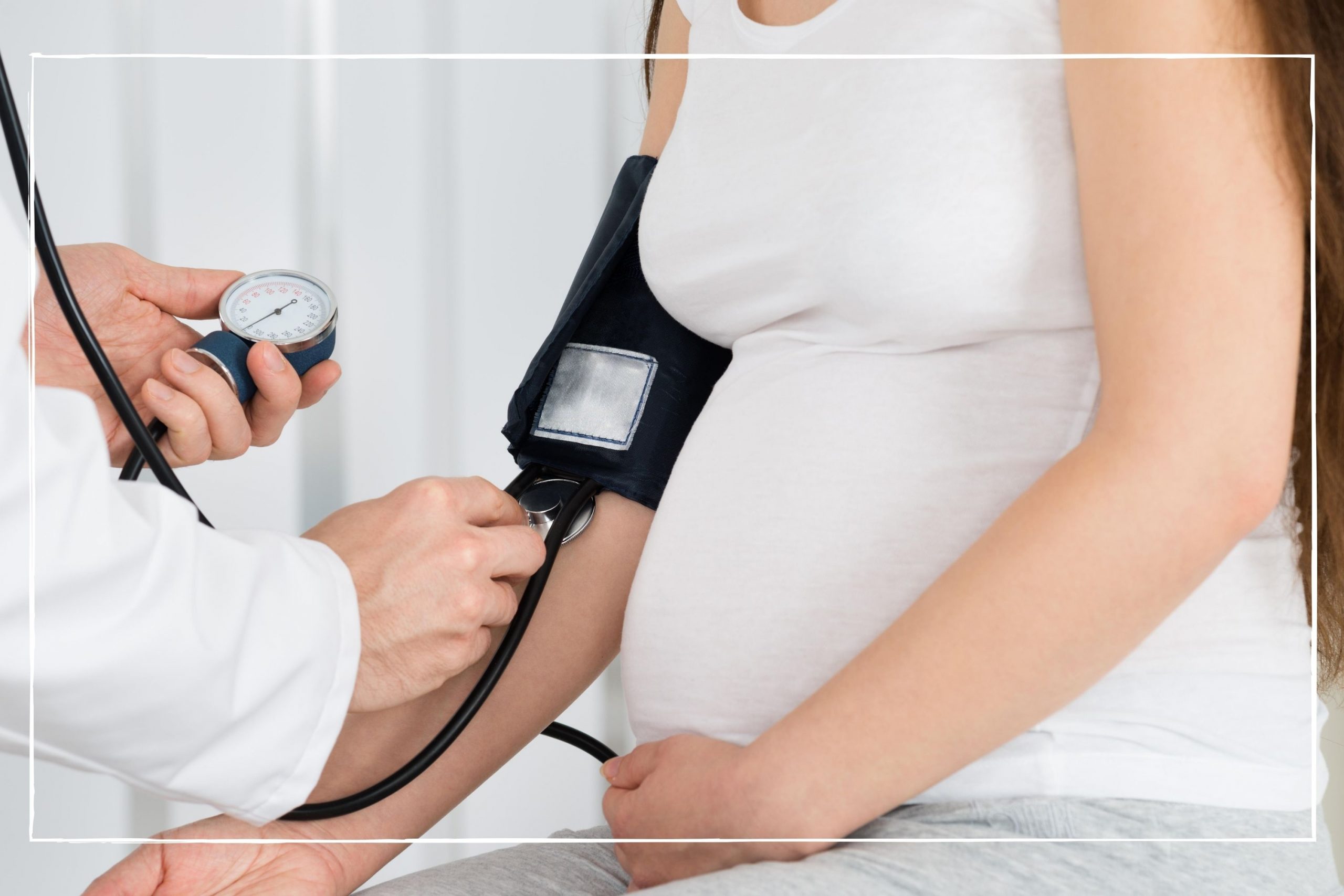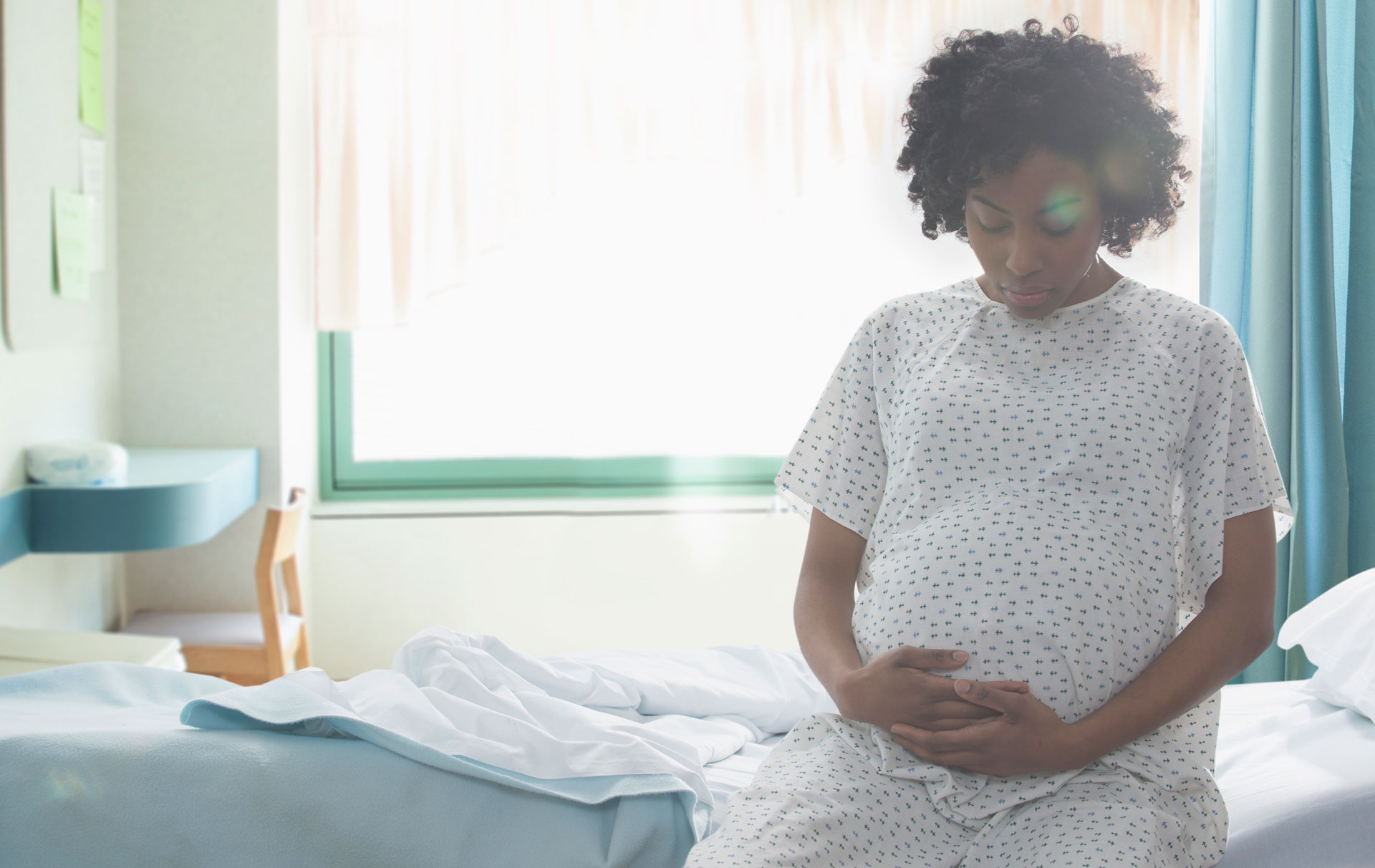What happens if you're diagnosed with pre-eclampsia?


If you've been diagnosed with pre-eclampsia symptoms, you might be wondering what will happen next.
Pre-eclampsia is a serious condition, that's characterised by high blood pressure in the mother. This causes the flow of blood through the placenta to be reduced, restricting oxygen and nutrients to the foetus which could restrict its growth.
Pre-eclampsia has been described as 'the disease of theories' because no one really knows exactly what causes it. Although, there are several significant research projects currently underway, the biology behind them remains poorly understood. What is known, however, is that the condition has its origins in the placenta. As Dr AlBendar told us, "The mechanism of the disease is still unclear and the only cure, for now, is to deliver the placenta and the baby, with the potential for long term complications.
Dr AlBendar added, "Pre-eclampsia can lead to premature birth and, in extreme cases, can be life-threatening to mothers and their babies. If undetected, pre-eclampsia can lead to eclampsia, which is one of the top five causes of maternal and infant illness- including seizures and coma- and is the cause of 13% of maternal deaths globally."
What happens if you're diagnosed with pre-eclampsia?
The NICE guidelines recommend that women diagnosed with pre-eclampsia symptoms should be admitted to hospital,' explains Professor Nelson-Piercy. 'And I certainly believe that this should always be the case.' However, some hospitals take the view that women with mild symptoms of pre-eclampsia can continue at home with more frequent monitoring at their day assessment units.
Pre-eclampsia can very quickly become a life-threatening emergency. If you are in hospital you can rest safe in the knowledge that you are in the best possible hands. Dr Nauf AlBendar, founder of The Womb Effect, told us, "Once you are in hospital you will be monitored very carefully. If you do develop very severe complications like placental abruption you are in the right place."
How long will I be in for?
A prolonged stay in the hospital, especially if you have other young children to look after, can be hard, particularly if you're not even feeling unwell but it is important to heed the advice of your doctors.
Parenting advice, hot topics, best buys and family finance tips delivered straight to your inbox.
Professor Catherine Nelson-Piercy, Consultant Obstetric Physician at Guy’s and St. Thomas’ Hospitals Trust and Queen Charlotte’s and Chelsea Hospital in London. She told us, "I tell my patients that from the point at which pre-eclampsia is diagnosed, the likelihood is that they will need to be delivered within two or three weeks," explains Professor Nelson-Piercy. "However, it is sometimes possible, though unusual, for women to stay in for up to 10 weeks before they need delivery."
What will happen in the hospital?
Once pre-eclampsia has been diagnosed what happens to you in hospital will depend on how advanced your pregnancy is. "If you are quite late on into your pregnancy you'll be taken into hospital for your baby to be delivered," explains Professor Nelson-Piercy. "If a woman has reached 37 - 38 weeks there's no point waiting beyond that because her baby's matured."
At this stage, the safest option for mother and baby is to induce labour.
If your pregnancy is less advanced then the doctors will weigh up the risks to you against the risk to your baby.
"As doctors we always prioritise the health of the mother," explains Professor Nelson-Piercy. "If the mother is very sick she will be advised to have the pregnancy ended regardless of what gestation she is. But if she's only 33 weeks we would try and prolong the pregnancy a bit longer because it will be much better for the baby."
How will I be monitored during pre-eclampsia?
Once in hospital, you and your baby will be very carefully monitored. You may be given hypertensive medicines to help lower your blood pressure and possibly medicines to prevent fits. You will usually be given blood pressure tablets." These don't control the actual disease," explains Professor Nelson-Piercy, "They just control the blood pressure."
As well as continually monitoring your blood pressure and changes to levels of protein in your urine, blood tests will be taken to look for signs of kidney or liver involvement as a result of the pre-eclampsia. You may also be given drugs to prevent seizures and/or Heparin to prevent blood clotting.
How will my baby be monitored?
Restricted blood flow between you and your placenta can result in a reduced supply of oxygen and nutrients to your baby. This may mean that he doesn't continue to grow as well as expected.
Once pre-eclampsia is suspected or known, your baby will be closely monitored so that he can be delivered before any growth problems become serious. Difficult decisions arise when serious problems of this nature develop in babies under 28 to 30 weeks. Doctors then need to weigh up the baby's chance of surviving outside the womb against those if the pregnancy is allowed to continue.
"If you are less than 36 weeks, then steroid injections will be given to help mature your baby's lungs," explains Professor Nelson-Piercy. "This is done at admission because it's not possible to predict exactly when your baby's going to need to be delivered."
Once in hospital, your baby's heart rate will be regularly checked and ultrasound scans used to check on his growth and wellbeing.

What happens after the birth?
For most women delivery reverses all of the effects of pre-eclampsia. However, this improvement is sometimes preceded by a final crisis.
"Taking away the placenta gets rid of the cause but not all of the effects," explains Professor Nelson-Piercy. "So it is not at all uncommon for women to get a little worse after they deliver before they ultimately get better."
What postnatal check-ups will you need for pre-eclampsia?
"Women will very often be on blood pressure tablets when they are sent home," explains Professor Nelson-Piercy. "Unless they've got pre-existing hypertension they won't need to take these beyond 4-6 after giving birth."
You will also need more frequent checks on your blood pressure and will need to go and see your GP for advice on reducing the dosage.
Again, NICE recommends that anyone with pre-eclampsia gets reviewed at 6 weeks to make sure the high blood pressure and the protein in the urine have gone away. They also need to be counselled about their long term risks.'
Are there any long term implications of pre-eclampsia?
Having had pre-eclampsia you are more at risk long term of developing high blood pressure and kidney disease in later life. You are also more at risk of a reoccurrence in subsequent pregnancies.
Video of the Week

Grace Walsh is a health and wellbeing writer, working across the subjects of family, relationships, and LGBT topics, as well as sleep and mental health. A digital journalist with over six years experience as a writer and editor for UK publications, Grace is currently Health Editor for womanandhome.com and has also worked with Cosmopolitan, Red, The i Paper, GoodtoKnow, and more. After graduating from the University of Warwick, she started her career writing about the complexities of sex and relationships, before combining personal hobbies with professional and writing about fitness.